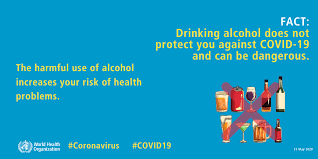Cancer Council is calling for urgent government action to protect the community from virtue marketing on alcohol packaging, as newly published research shows there are more ‘health washing’ and ‘green washing’ claims on these products compared to a decade ago.
and ‘green washing’ claims on these products compared to a decade ago.
The recently published study looked at the labels of over 4,000 alcoholic products released in Australia from 2013-2023.
Researchers focused on virtue marketing claims, which are statements that emphasise products’ nutritional benefits, eco-friendliness, or support for social causes. For example, ‘low sugar,’ ‘fair trade certified,’ or ‘sustainably grown.’
The research found that over 10 years:
- The number of alcohol products carrying a virtue marketing claim went up by 19%, with some cans or bottles carrying as many as eight of these claims.
- Nearly 1 in 3 (32.5%) new products feature a health-oriented or nutrition claim, such as ‘no added sugar’, ‘vegan’, or ‘low carb’ – an increase of 13% since 2013.
- There was a significant spike in the prevalence of virtue claims on alcoholic cider products (up 50%), followed by ready-to-drink alcohol products (up 29%).
Lead researcher, Ashleigh Haynes, from Cancer Council Victoria’s Centre for Behavioural Research in Cancer has slammed the industry for capitalising on health-conscious consumers, describing the findings as deeply concerning.
“These troubling results clearly show that the alcohol industry is leaning into using marketing claims to ‘health wash’ or ‘green wash’ their harmful, addictive products more than they were 10 years ago.”
“This profit-boosting tactic is being used by the alcohol industry to make alcoholic products appear like a healthy or ethical choice, when they are not. We know these claims can also distract consumers from the risks to health and wellbeing linked to alcohol consumption.”
“The reality is that alcohol increases the risk of at least seven types of cancer, including breast, bowel, throat and mouth cancer, and other serious diseases. Every year, alcohol causes nearly 3,500 cancers in Australia.”
The research comes before Food Ministers from across Australia and New Zealand are due to meet on 25 July to discuss if sugar and carbohydrate marketing claims like ‘no sugar’ and ‘low carb’ should be allowed on alcoholic products.
Clare Hughes, Chair of Cancer Council’s National Nutrition, Alcohol and Physical Activity Committee, said higher standards for alcohol labelling were urgently needed to protect Australians’ health and wellbeing.
“When it comes to alcohol, Australians deserve honest product labels. Alcohol in any amount is harmful to health, and these brands should not be allowed to use marketing tactics that imply alcoholic products are nutritious or good for our diets in any way.”
“We urge Food Ministers to prioritise public health in this upcoming July meeting by introducing policy that will remove carb and sugar claims on alcohol packaging, helping all Australians make more informed decisions about the alcoholic products they purchase,” she concluded.
For more information and tips to cut alcohol down or out, visit www.cancervic.org.au/alcohol
-ENDS-




